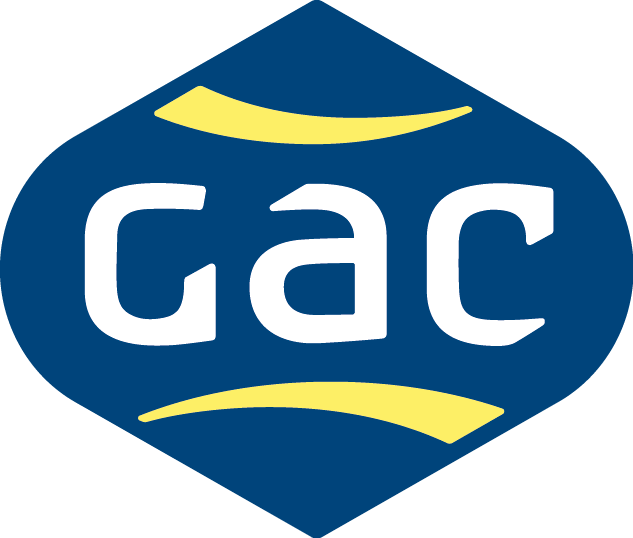Meet Andreas: Our multitalented coordinator excelling in logistics and operations
- anitasaltvedt6
- 23. mai 2024
- 4 min lesing
Andreas, a 43 year old multitalented coordinator from Bergen, who started in hotels, moved through airport logistics, and ended up in customs and shipping by chance. Now at GAC Norway, he loves the ever-changing challenges and chances to keep learning. Let’s find out how his diverse experiences help him thrive in his current role.

Can you tell us about your background and what led you to a career in customs and shipping?
My background may not be typical for the shipping industry, but it has been quite a journey. From an early age, I dreamed of a career in the hotel industry. This aspiration led me to apply for a culinary program in high school, which paved the way for my enrollment at the Hotel School in Stavanger, where I earned a bachelor's degree in hotel management. After completing my education, I joined SAS Ground Handling at Bergen Airport, where I spent 9 enjoyable years honing my skills in logistics and customer service.
Subsequently, I transitioned to Helse Bergen as a traffic planner, dedicating nearly 12 years to strategic planning and operations management. Seeking further professional growth, I eventually found myself at GAC Norway, entering the customs and shipping industry somewhat coincidentally.
Despite the unexpected shift, I quickly became fascinated by the dynamic nature of the shipping industry. The constant evolution within this field has been incredibly engaging, and I have always enjoyed working in an industry that offers continuous learning and development opportunities.
What attracted you to work for GAC Norway specifically?
I was familiar with GAC and had heard many positive comments about the company. What specifically attracted me to GAC was its reputation for fostering a positive and dynamic work environment. The position I applied for highlighted a busy yet flexible work atmosphere, which I find invigorating. Additionally, GAC's commitment to personal development and opportunities for career advancement aligned perfectly with my professional goals. The company's emphasis on innovation and continuous improvement in the shipping industry resonated with my desire to work in a field that is constantly evolving.
Can you describe a typical day at work?
A typical day at work starts with getting an overview of urgent tasks and prioritizing them accordingly. This process is well established within the team, ensuring that issues are usually resolved quickly. We work closely with logistics and partially with ship agents, continuously following up to avoid delays in ongoing operations.
In customs, our responsibilities include both simple and complex customs clearances, pre-declaration of oil and gas cargo, and assisting customers with export and import license applications to the Customs Authority. We also handle provisions for cruise ships and other vessels, support suppliers with applications to the Norwegian Medicines Agency for the transit of medicines to vessels, and manage the start-up and closure of T-documents, among other tasks.
By maintaining clear communication and collaboration, we ensure that all processes run smoothly and efficiently throughout the day.
What do you particularly like about the job?
I particularly enjoy the variety of tasks and the exciting collaboration both internally between departments and with third parties. Every day brings new learning opportunities and the chance to form new partnerships, which keeps the work dynamic and engaging. I appreciate the need to adapt quickly to changing circumstances, as it challenges me to stay agile and innovative.
Additionally, I value the diversity among the employees. Working with colleagues from many different cultures enriches the workplace environment and broadens my perspective. This cultural diversity fosters a more inclusive and creative atmosphere, which I find incredibly rewarding.
How do you stay updated with the regulations and requirements that impact your work in customs?
To stay updated we closely follow the guidelines issued by the Customs Authority. Additionally, we collaborate with system suppliers to stay informed about new solutions and technologies being launched. Regular updates are shared in our weekly meetings, ensuring that the entire team is aware of any changes or new requirements.
An exciting project on the horizon is Digitoll, which will become the main process for all shipments imported into Norway starting from April 1, 2025. This initiative will streamline customs procedures and enhance efficiency, and we are actively preparing for its implementation.
What advice would you give to someone interested in pursuing a career in customs and shipping?
I would recommend a career in an exciting industry with continuous development and varied tasks. The learning curve may be steep, but the reward of contributing to an important area of expertise within the company is worth it.
Looking towards the future, what skills do you believe will be most important for professionals in the shipping industry?
Effective communication and staying updated on regulations and changes will become increasingly important. At the same time, keeping pace with the technological advancements happening in society is essential. The use of AI as a tool in daily operations can streamline many areas, and companies must already now plan and prepare for this in the future.





Veldig interessant lesning om Andreas! Det er fascinerende å se hvordan hans varierte bakgrunn bidrar til suksess i en så krevende bransje. Artikkelen belyser perfekt hvordan logistikk og koordinering krever et skarpt sinn og høy konsentrasjon. Dette understreker viktigheten av å fremme et arbeidsmiljø som støtter slike kognitive funksjoner, noe som ofte blir oversett i jakten på ren systemeffektivitet.
Den oversette logistikken: Optimalisering av arbeidsplassen
For en koordinator som Andreas, som daglig håndterer komplekse fortollinger, tidskritiske leveranser og flere interessenter, er evnen til å opprettholde oversikt og ro helt avgjørende. Her spiller det fysiske arbeidsmiljøet en direkte rolle. Forskning innen miljøpsykologi har vist at faktorer som støy, belysning, romfølelse og til og med fargepalett har en målbar innvirkning på produktivitet…